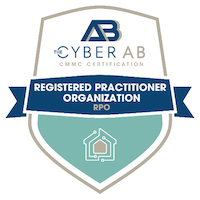Demystifying CUI and FCI: A Straightforward Guide for DoD Contractors
In the world of the US Department of Defense (DoD) Industrial Base (DIB), where prime- and sub-contractors, suppliers, and vendors form the robust framework of the DoD supply chain, there lies a critical responsibility: safeguarding sensitive information. This task chiefly revolves around Controlled Unclassified Information (CUI) and Federal Contract Information (FCI). This blog aims to provide clear and concise guidance on DoD CUI Identification, a topic often shrouded in complexity.
Many contracts come with a particular clause – DFARS 252.204-7012 – which mandates the protection of certain DoD-related CUI, termed as “controlled defense information” within the clause. However, the landscape of what precisely constitutes DoD CUI remains foggy for many. The questions are relentless - “What exactly is CUI?”, “Which pieces of information require stringent protection?”
The narrative is further complicated by the insufficient efforts by the DoD, as required by DoDI 5200.48, to correctly identify and mark CUI. Past statements such as “treat all information as CUI” or “apply uniform protection to all CUI” from DoD and other officials have only bred more confusion.
Here’s the crux of the matter:
Not every piece of contract information is designated as CUI. Only specific and limited types of information, as indexed by the National Archive and Records Administration (NARA), hold this classification.
DFARS 7012 specifically mandates safeguards for DoD CUI or “controlled defense information”. By accurately identifying these elements, we can narrow down the scope of our protection measures, thus realizing significant resource savings in the implementation and maintenance of cybersecurity programs.
Aligning our cybersecurity protocols with DFARS 7012 compliance and gearing up for the forthcoming Cybersecurity Maturity Model Certification (CMMC) necessitates a clear understanding of the information that warrants protection.
The task of identifying DoD CUI within our environments, unfortunately, often falls solely on our shoulders. The challenge of CUI discovery and identification is real, and this blog post intends to simplify this task. We propose a decision-based identification process and provide a downloadable identification guide to serve as a useful reference.
Moreover, Federal Contract Information (FCI) is another crucial area of focus. FCI encompasses information provided by or generated for the government under a contract to develop or deliver a product or service to the government. It’s vital to note that FCI is not for public consumption and necessitates measures to prevent unauthorized access.
Understanding and navigating the realms of CUI and FCI are foundational to establishing a robust cybersecurity framework within the DoD contractor community. This blog and the accompanying identification guide aim to be valuable resources in demystifying DoD CUI and FCI, promoting a culture of enhanced compliance and robust protection of sensitive information.
What is Federal Contract Information (FCI)?
Federal Contract Information, commonly abbreviated as FCI, is a term that often pops up in the realm of government contracting, especially when dealing with the Department of Defense (DoD). But what exactly does it entail? Let's break it down.
FCI refers to information that is not intended for public release and is provided by or generated for the government under a contract to create or deliver a product or service to the government. The crux here is the information's nature; it's not meant for public eyes, and therefore requires a certain level of safeguarding to prevent unauthorized access.
Here are some key points to understand about FCI:
Scope:
FCI covers a wide range of information that could include, but is not limited to, technical data, operational protocols, or even financial details pertinent to the contract.
It's important to note that the designation of FCI is not dependent on the format or method of the information’s collection, creation, or communication.
Protection:
When dealing with FCI, contractors are required to apply protective measures to keep this information safe from unauthorized access or disclosure.
The safeguarding requirements for FCI are generally less stringent compared to Controlled Unclassified Information (CUI), but still crucial to ensure the integrity and confidentiality of the information.
Identification:
Unlike Controlled Unclassified Information (CUI), FCI may not always come with explicit marking or designation.
It’s the nature and source of the information that typically determine its classification as FCI.
Regulatory Framework:
The protection of FCI is often governed by contractual clauses which outline the necessary safeguarding measures.
Federal Acquisition Regulation (FAR) 52.204-21 is a common clause that lays down the minimum security standards for protecting FCI.
Significance:
Proper handling of FCI is crucial as it not only aligns with contractual and regulatory compliance but also bolsters the security posture of the contracting entity.
Mismanagement or unauthorized disclosure of FCI could lead to contractual penalties and may adversely affect the contractor’s standing with the government.
Understanding and appropriately managing FCI is an integral aspect of maintaining a compliant and secure operational environment, especially when engaging in contracts with the DoD or other federal agencies. Being adept at identifying FCI, applying the requisite safeguards, and ensuring adherence to the contractual and regulatory frameworks is essential for navigating the landscape of federal contracting proficiently.
What is Controlled Unclassified Information (CUI)?
Controlled Unclassified Information, or CUI, is a designation used for information that, although not classified, requires a certain level of protection and handling controls. This categorization is pivotal in the context of government contracting, especially when engaging with the Department of Defense (DoD).
Here’s a closer look at what CUI encompasses:
Scope:
CUI is a broad umbrella under which various types of sensitive information fall. This information may pertain to individuals, government operations, or private entities involved in government contracts.
The designation of CUI is not reliant on the method of the information’s collection, creation, or communication, but rather its nature and the requirement for protection.
Protection:
CUI mandates a level of safeguarding against unauthorized access and disclosure. The handling requirements are outlined by the government and often specified in contractual agreements.
The protective measures for CUI are more rigorous compared to Federal Contract Information (FCI), reflecting the sensitive nature of the information.
Identification:
CUI should be clearly marked or designated to ensure proper handling. This designation aids in the correct application of the required protective measures.
The National Archives and Records Administration (NARA) oversees the CUI program and provides guidelines on the identification and marking of CUI.
Common CUI Types:
Critical Infrastructure Information: Details regarding the security and resilience of essential infrastructure sectors like energy, financial services, and transportation.
Privacy Information: Data concerning individuals, including Personally Identifiable Information (PII) and protected health information (PHI).
Controlled Technical Information: Technical information including research, engineering data, engineering drawings, specifications, processes, manuals, technical reports, and software executable and source code.
Export Controlled Information: Information that is subject to export controls under various federal laws.
Law Enforcement Information: Information related to law enforcement investigations, tactics, or operations.
A full listing of CUI categories can be found on the National Archives website:
Regulatory Framework:
The safeguarding and handling of CUI are governed by federal regulations and contractual clauses. DFARS 252.204-7012 is a key clause concerning the protection of CUI in DoD contracting.
Compliance with the designated handling requirements for CUI is a contractual obligation, and non-compliance could result in penalties.
Significance:
Accurate identification and proper handling of CUI are crucial for maintaining a secure and compliant operational environment.
The mismanagement or unauthorized disclosure of CUI can have serious repercussions, both legally and operationally.
Understanding CUI, its various categories, and the associated safeguarding requirements is essential for any entity engaged in government contracting. The management of CUI not only aligns with regulatory compliance but also significantly contributes to the overall security posture of the organization.
Additional CUI Resources:
In this article, we covered the vital concepts of Controlled Unclassified Information (CUI) and Federal Contract Information (FCI) for entities engaged with the Department of Defense (DoD). We attempt to demystify the protective measures required for both classifications, particularly emphasizing the diverse categories under CUI, including Controlled Technical Information (CTI).
We aim to aid in accurate identification and prudent management of CUI and FCI, underlining the regulatory frameworks like DFARS 252.204-7012 that mandate such safeguarding. Through a better understanding of CUI and FCI, contractors can enhance compliance, fortify their security posture, and navigate the DoD contracting realm proficiently.
Need More Clarity on CUI and FCI? We're Here to Help!
The realm of Controlled Unclassified Information (CUI) and Federal Contract Information (FCI) is broad and nuanced, especially when navigating through DoD contracts. While this guide serves as a stepping stone, we understand that every contracting scenario is unique and may present its own set of challenges.
Should you have any more questions or need further guidance on CUI, FCI, or any other aspect of DoD contracting, our team of experts is just a click away. We offer personalized consultation to help you navigate the regulatory landscape, ensuring you stay compliant while protecting sensitive information effectively.



